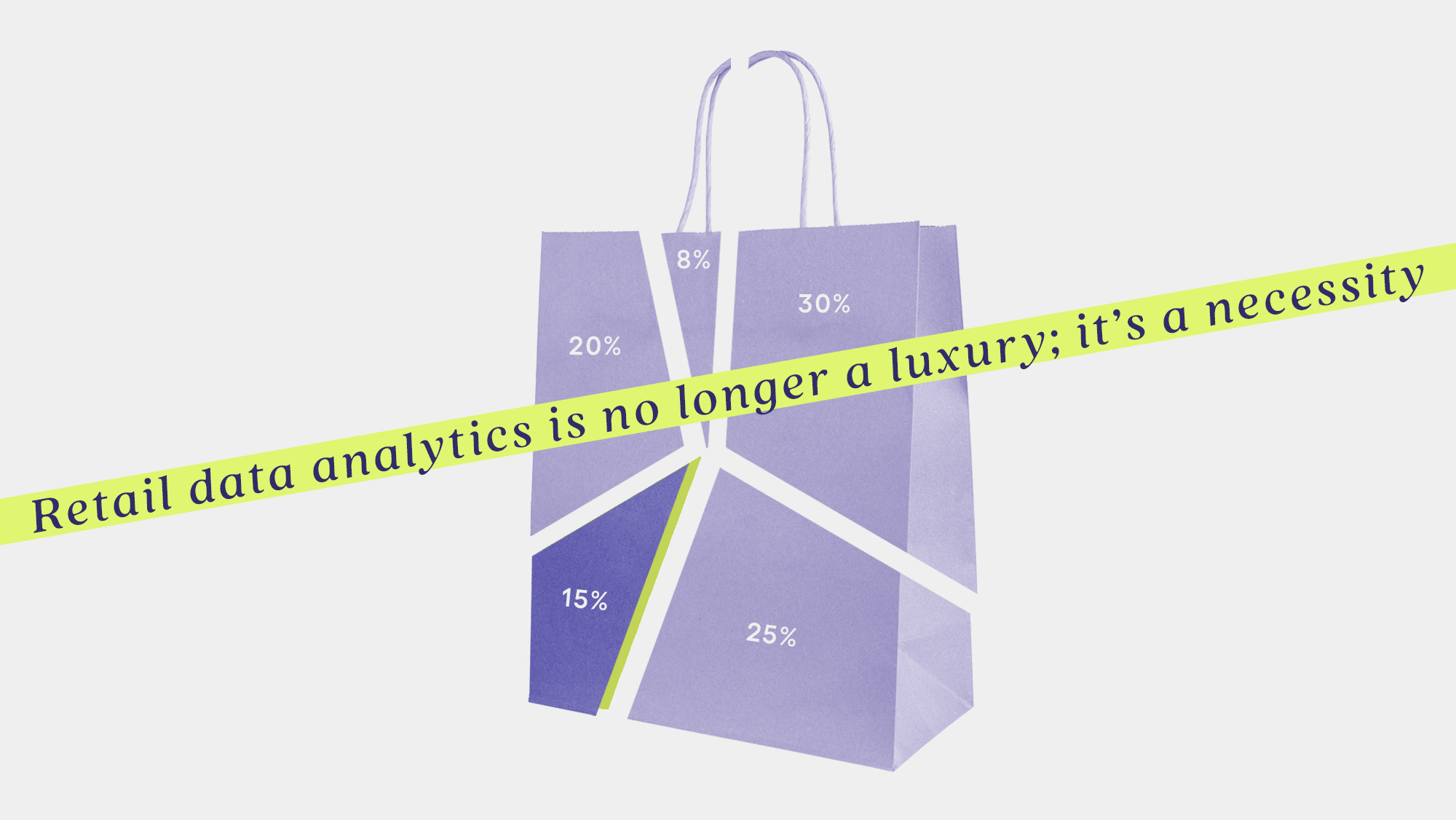
AI and the Retail Marketer’s Future
How AI transforms strategy and processes, driving the adoption of Positionless Marketing
Optimove Connect 2026: Join us in London on March 11–12 to master Positionless Marketing
The CRM Marketer Evolution Curve’s Guide

This blog post explores why retail data analytics is crucial for brands, how it transforms the industry, and the benefits it offers retailers.
Data in the retail landscape is more than just a byproduct of customer transactions. It's the key to enhancing customer experiences, unlocking loyalty, and maintaining a competitive edge. Retailers who use data analytics wisely are better equipped to navigate the market and drive overall success.
Retailers use data analytics to collect, analyze, and interpret data to drive strategic decisions and improve marketing performance.
To gather customer analytics, retailers use a wide range of data types, including:
To turn this data into actionable insights, retailers rely on advanced technologies, including artificial intelligence (AI), machine learning (ML), and business intelligence (BI) tools. These technologies enable data processing at scale, uncovering patterns and trends that would be difficult to collect manually.
Data analytics in retail is essential in many ways, including the following:
Key benefits of retail data analytics include some of the following:
By using retail analytics, businesses are able to stay ahead of the competition.
Staying Ahead of Market Trends: Predictive analytics enable retailers to forecast shifts in consumer behavior and market trends, including likelihood to convert, become a top spender, churn, and reactivate, as well as future value. By staying ahead of the curve, retailers can adapt quickly to changing customer needs and maintain a competitive edge.
Real-Time Decision Making: Making real-time decisions based on up-to-the-minute data is crucial for the delivery of highly personalized customer marketing messages to individual customers, at the moment of greatest relevance. Real-time analytics allows retailers to adjust marketing campaigns, promotions, and inventory to capitalize on immediate opportunities.
Gaining a 360-degree View of the Customer: By integrating data from all customer touchpoints—online, in-store, and mobile—retailers can gain a comprehensive view of the customer journey. A 360-single Customer View is accessible to the organization as a marketer's data mart and orchestrates individualized customer relationships across all available channels. It enables more personalized interactions, strengthening customer loyalty and retention.
Related: 10 Retail Marketing Strategies to Boost Early Sales
While there are many benefits, retailers must be prepared for some of the challenges of dealing with data.
Data Quality and Integration: Retailers often face challenges with incomplete, inaccurate, or siloed data across various systems. Integrating data from different sources and ensuring its quality is critical for meaningful analysis.
Skill Gaps and Resources: The demand for skilled data analysts is growing, and many retailers struggle to find the right talent. To address this, retailers can hire specialists, outsource analytics functions, or train existing teams to use intuitive platforms that make data analytics more accessible to marketing teams, reducing the need for deep technical expertise.
Privacy and Security Concerns: As data collection becomes more pervasive, ensuring data privacy and security is essential. Retailers must comply with regulations and build trust with customers. Best practices include ensuring proper data encryption, securing customer information, and adhering to GDPR guidelines.
Data analytics can be compelling for retailers. By leveraging predictive models and advanced data analytics, they could anticipate customer needs and provide timely, personalized offers that boost sales. Deep customer analytics delivers advanced customer insight, which allows marketers to engage with each customer successfully.
Discover how farm supply retailer Blain's Farm & Fleet optimizes and uses data analytics to improve journey orchestration, personalization, and loyalty.
The future of retail data analytics is increasingly driven by AI and marketing automation, two advanced tools that allow marketers to automate and optimize tasks across the marketing spectrum. AI-powered algorithms analyze vast amounts of data to predict future customer behavior and value, optimize pricing, and automate decision-making. Automation and predictive analytics are revolutionizing the retail experience, enabling businesses to stay agile and deliver more personalized, efficient, and profitable processes.
Retail data analytics is no longer a luxury; it's necessary for brands across every sector in the world. By harnessing the power of data, retailers can make informed decisions, improve customer experiences, and drive significant organizational growth.
For more insights on retail data analytics, contact us to request a demo.
The CRM Marketer Evolution Curve’s Guide
The CRM Marketer Evolution Curve’s Guide. Learn 5 stages of a marketer’s evolution. Discover your level and how to advance.


Rony Vexelman is Optimove’s VP of Marketing. Rony leads Optimove’s marketing strategy across regions and industries.
Previously, Rony was Optimove's Director of Product Marketing leading product releases, customer marketing efforts and analyst relations. Rony holds a BA in Business Administration and Sociology from Tel Aviv University and an MBA from UCLA Anderson School of Management.


